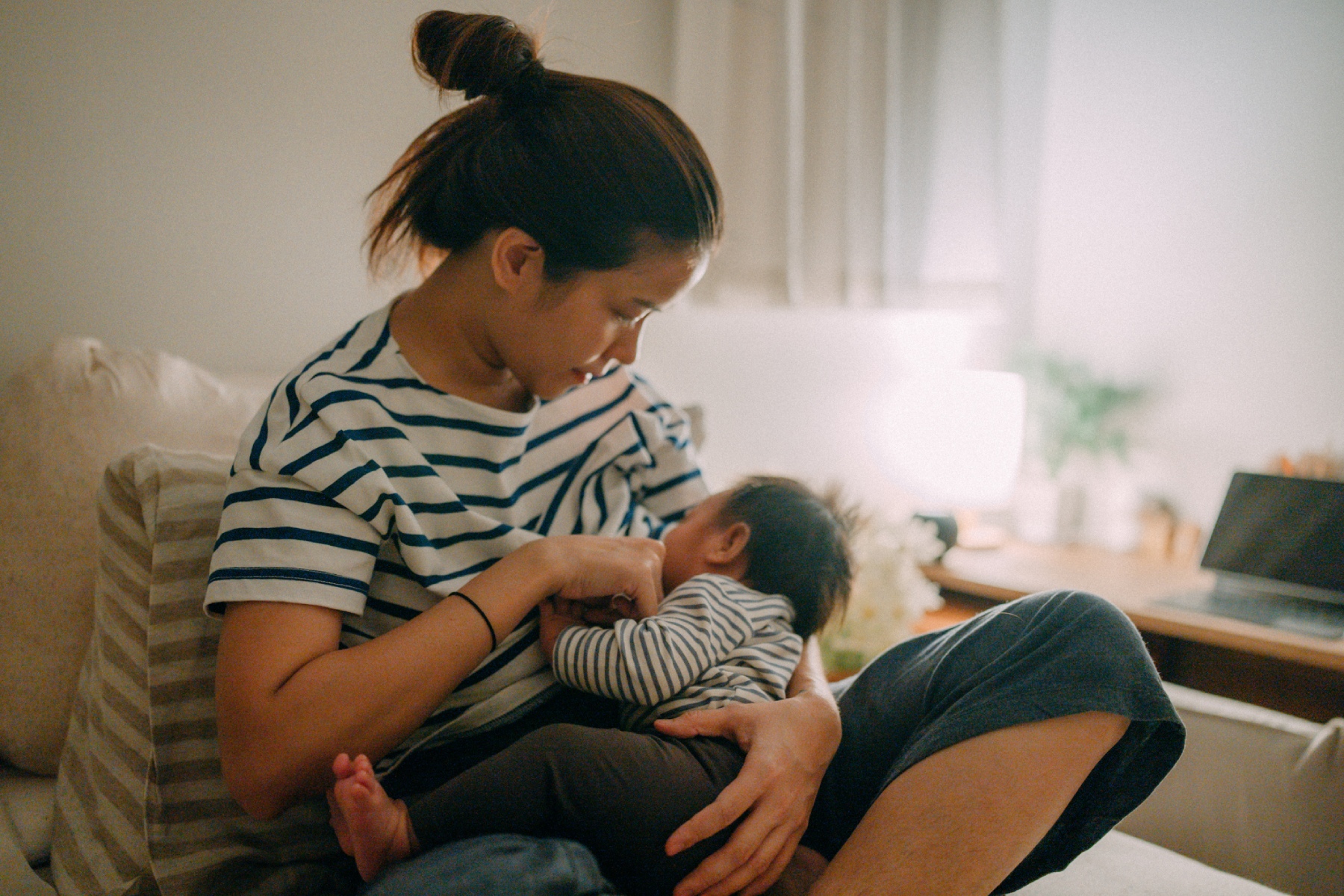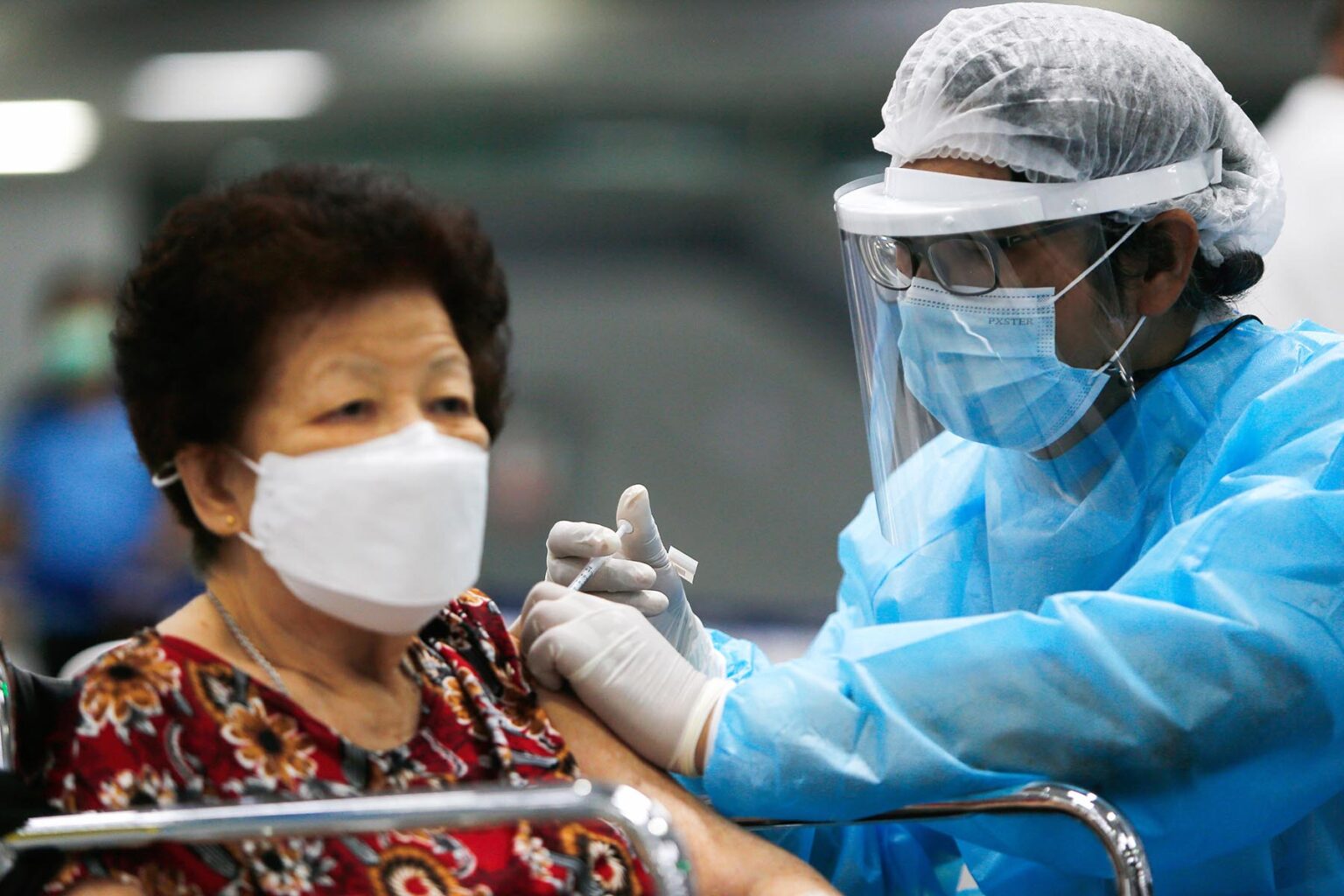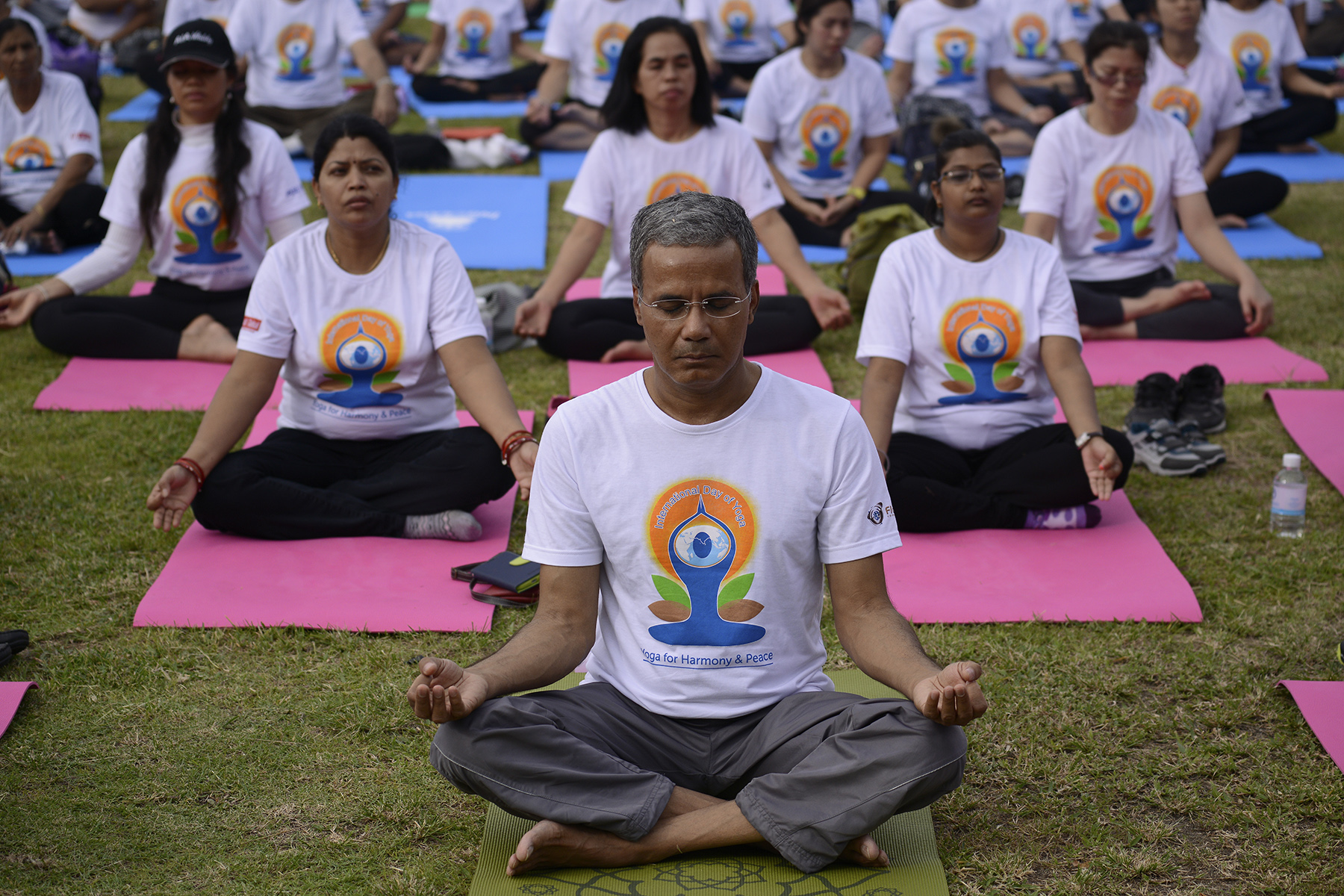Naturally, looking after your health is a top priority when moving to a new country. That said, learning how to navigate an unfamiliar healthcare system can feel like a daunting task, especially if you face a language barrier. Fortunately for women relocating to Thailand, the country offers a wide range of services that are accessible to everyone.
To help you familiarise yourself with women’s health services in Thailand, this article covers the following:
- An overview of women’s healthcare in Thailand
- Women’s healthcare services in Thailand
- Do you need insurance to access women’s healthcare?
- Does Thai healthcare include cancer screenings?
- Women’s mental health services in Thailand
- Menstrual health
- Sexual and reproductive health
- Fertility treatments
- Maternity care services
- Breastfeeding
- How to deal with menopause in Thailand
- Help against gender abuse and violence
- Useful resources
Allianz Care
Allianz Care is a world leader in providing international health insurance. Their various premiums provide professionally designed solutions for a variety of expat lifestyles. So, wherever your life takes you, make sure you have the right health protection for you and your family with Allianz Care.
An overview of women’s healthcare in Thailand
Thailand is well known for its top-quality healthcare system, which ranks 5th out of 195 countries on the 2021 Global Health Security Index. The country has a Universal Coverage Scheme (UCS – โครงการความคุ้มครองสากล), which reaches around 99% of the Thai population.

That said, some areas of women’s healthcare in Thailand are lacking. For example, in recent years, Thailand has experienced alarmingly high rates of violence, domestic abuse, and teenage pregnancies. There is also a shortage of midwives, which limits the options for homebirths.
On the plus side, though, the life expectancy for women in the country is 83, which is higher than in the US (79 years) and on par with the United Kingdom.
Women’s healthcare services in Thailand
If you are working for a Thai company, you will almost certainly have access to the Thai Social Security Fund (ระบบประกันสังคม), which provides a reasonable level of medical care for free.
However, most expats living in the country have coverage that is provided by their employer or choose to buy additional private health insurance which grants them access to a wider range of treatments and the option to pick which hospitals and doctors they use.
Fortunately, there are reputable private health insurance providers in Thailand that offer a choice of plans to suit your needs, such as:
Unlike many countries, Thailand doesn’t have family doctors or GPs. People tend to go to their local pharmacy to treat mild ailments, and fortunately, most pharmacists are well-trained and speak a reasonable amount of English. For more serious care or investigatory procedures, on the other hand, you will need to go to a hospital or a clinic if you live in a more rural area.

Notably, if you have social security medical care, you will need to go to your assigned hospital. However, if you have private health insurance, you can go to any hospital in the country, and your insurance provider will have a list of those that don’t require you to pay out of pocket and claim it back later. These lists usually include all major private hospitals.
Thailand is also working to improve access to women’s healthcare in rural areas.
Finding a gynecologist in Thailand
Gynecology is an important area of women’s healthcare, and fortunately, it is easy to visit a gynecologist in Thailand without a referral. You can simply make an appointment at your local private hospital. Making a walk-in appointment is usually possible, too, if you are happy to see whichever doctor is available.
It is important to be aware that private hospitals in Thailand organize their medical centers in different ways. For example, the Bangkok Hospital chain has a Women’s Health Center, which is distinct from its fertility center. However, the doctors who practice in both centers generally specialize in the fields of obstetrics and gynecology.
If you want to see a specific gynecologist, it is a good idea to check where they work, as many doctors practice in several different hospitals throughout the week. Moreover, if you have to pay out of pocket for your healthcare, you may be able to save some money by visiting the same doctor at a cheaper hospital.
Women’s clinics and health centers
As mentioned, people access most healthcare at their local hospital in Thailand, although some doctors also run small clinics that offer their services at a more affordable rate.

However, as a non-Thai speaker, it can be tricky to find these clinics. That said, you can always ask your doctor when you visit them at their main hospital clinic. But it may be best to do so when there isn’t a nurse in the room.
Do you need insurance to access women’s healthcare?
As mentioned, you do not need to have health insurance to access women’s healthcare in Thailand and can simply visit any private doctor and pay out of pocket.
However, if you have social security coverage through your job, it will cover a wide range of women’s healthcare, including maternity care. In fact, it will generally cover most costs as long as you are in a hospital that accepts it.
If you have private health insurance, your coverage will depend on your exact policy. Therefore, it is important to carefully check the details before signing. Notably, many policies only provide inpatient coverage, which means that you will need to pay for all outpatient treatments out of pocket.
It is also important to note that many things, such as maternity care or cancer treatment, are generally not included within the first six to ten months of a policy. Therefore, it is a good idea to arrange insurance well before you need it.
Does Thai healthcare include cancer screenings?
The healthcare system in Thailand has a fairly robust cancer screening program for women, which includes breast and cervical cancer.
Once you have had your first check, your doctor will generally make appointments for follow-up checks, as required. Social security healthcare will cover all these costs. However, if you have private health insurance, you should check your policy to see exactly what is included.
Women’s mental health services in Thailand
While Thailand has a reasonably robust healthcare system, mental health services are lagging. There is a shortage of psychologists nationwide, which means that access to mental healthcare can be difficult.
However, awareness of the need for mental health support is growing, and there are charities, such as the Women’s Health and Reproductive Rights Foundation of Thailand (WHRRF), that are working to improve the healthcare system.
If you want to find English-speaking practitioners or counseling services, it is best to ask your local expat community through platforms such as Facebook. You will usually find women-specific groups to join, and these can provide a safe space in which to ask for advice in the area of mental health.
There are also various private counseling practices, although they are mostly based in Bangkok. These include:
- Bangkok Counselling Services
- Counseling Thailand
- New Counseling Services
- Psychological Services International
The UK Foreign, Commonwealth & Development Office also provides a list of mental health facilities around the country.
Menstrual health
If you are having any issues with your menstrual health, it is best to visit your gynecologist at your local hospital. If you already have one you know and trust, it is advisable to make an appointment in advance.

Thai doctors usually have a strong grasp of English, which means that you can discuss issues surrounding your menstrual health without any difficulty. That said, if you visit a government hospital in a more rural area, the doctor’s English might be rather rusty. In this case, it might be wise to take a trusted Thai friend with you to help with communication.
Menstrual products are widely available in Thailand, although, similar to much of Asia, there is a strong preference for sanitary pads over tampons. That said, you should be able to find tampons in a Boots or Watsons store in more urban areas that have a lot of expats or tourists.
Moreover, some cities, such as Chiang Mai, Bangkok, or Koh Phangnan, have eco-stores that may stock sustainable menstrual products like menstrual cups and washable pads.
A pack of sanitary pads can cost anywhere from ฿25 up, with cheaper pads costing around ฿5 each. A pack of tampons is likely to cost from ฿80 up, with a single tampon costing around ฿8–10. Notably, tampons – which are classified as ‘cosmetics’ in Thailand – have a higher rate of tax than other sanitary products, which has caused some controversy. That said, even sanitary pads are subject to 7% VAT.
Currently, there is no support for free sanitary products. However, the Thai government is considering providing free pads for various disadvantaged groups. According to Thai PBS, Thai women spend at least ฿2,000 per year on sanitary products.
Sexual and reproductive health
Unfortunately, Thailand falls short in the areas of sexual and reproductive healthcare for women. Indeed, the rates for STDs are high, as are teenage pregnancies, which have a rate of 24.4 per 1,000 adolescents.
These issues are down to the fact that sex education in schools is very mixed, and students are often taught outdated information. Moreover, the Thai curriculum does not mention safe sex and sexual harassment, which many parents believe is essential for children. Some also feel that sex education should be introduced before the 3rd grade in order to better protect them.
Accessing contraception
As an expat living in Thailand, it is possible to find a wide range of contraceptive options. However, depending on your insurance policy, you may have to pay out-of-pocket for them. That said, birth control is generally more affordable than in many countries in the Global North.

Thai citizens can access contraceptive pills, implants, and condoms through Universal Health Coverage, which has improved in recent years.
Indeed, Thailand has made significant strides to address the barriers facing young people when it comes to accessing family planning and sexual and reproductive health information.
Is abortion legal in Thailand?
As of 2022, abortion is legal up until 20 weeks in Thailand. This includes elective abortions. However, it can still be difficult to find a doctor to perform the procedure.
Due to the Buddhist belief in karma, many doctors are also reluctant to perform abortions. This has led to up to 300,000 women a year seeking them through unofficial means. Tragically, up to 10% of them lead to injury or even death.
However, there are organizations working to improve access to abortions. RSA Thai, the Thai referral system for safe abortion (website in Thai) provides details of the 110 clinics nationwide that can provide safe terminations.
Abortions are provided free of charge under both the Universal Coverage Scheme (UCS) and the Social Security Scheme (SSS), which some internationals are members of.
Fertility treatments
Fertility treatment is widely available across Thailand at a large number of private hospitals and clinics. In fact, due to the affordable prices, many people travel to the country from overseas to undergo treatment.
To give more context, IVF packages at one of Thailand’s larger private hospital chains range from ฿300,000 to just over ฿400,000.

Expats living in Thailand can assess fertility treatments, which may be covered by their private insurance policy. However, social security healthcare does not cover them.
That said, the National Health Security Office (NHSO – สำนักงานหลักประกันสุขภาพแห่งชาติ ส.ป.ส.ช) is discussing adding IVF to the benefits of social security healthcare in order to tackle the decreasing birth rate and aging population.
If you are interested in accessing fertility treatments in Thailand, you should first check if your insurance policy covers them. You can then find out which clinics and hospitals are covered and make an appointment for a consultation.
Maternity care services
Both Thai healthcare systems cover maternity care for women in the country. However, you will need to go to a government hospital or one that is covered by social security.
Notably, you may encounter lower levels of English among nurses and support staff in these hospitals compared to those in private hospitals. For this reason, most expats opt to give birth in a private hospital. If you are interested in having a natural birth, you will almost certainly need to visit a private hospital.

Local expert
Jane Evans
Insider tip
Before becoming pregnant, it’s essential to review your health insurance policy to determine if there are any specific requirements you must meet to qualify for maternity coverage.
It’s also crucial to note that Thailand heavily emphasizes hospital childbirth, resulting in a notably high cesarean section rate of 35%. Home births exist in a gray area, and as a foreigner, locating a Thai midwife is nearly impossible. Consequently, many midwives from abroad work in Thailand, often without proper work permits.
Breastfeeding
Breastfeeding is not as popular in Thailand as in many countries in the Global North. In fact, according to UNICEF, only around 30% of women exclusively breastfeed their babies. This is due to a range of factors, including lack of support.

As a result, you are unlikely to see many Thai women breastfeeding in public. However, as an expat, you are unlikely to encounter any problems if you do it discretely, although you may get a few curious glances. People are unlikely to say anything due to the non-confrontational nature of Thai society.
Some private hospitals have breastfeeding clinics, so if you need support you can contact your local hospital to find out more.
How to deal with menopause in Thailand
In Thailand, women typically go through menopause around the age of 48 to 50. The country’s healthcare system offers a range of options for women who have symptoms, including various types of hormone replacement therapy (HRT).
If you start to notice negative menopause symptoms, you can go and speak to your gynecologist, who will assess you and prescribe HRT if it is deemed appropriate.
Your health insurance policy may cover this. However, you will need to check with your provider. The cost of HRT is not prohibitively high (upward of around ฿300 per month), although your doctor may require you to undergo some more costly tests to check that you are suitable for the treatment.
Help against gender abuse and violence
Unfortunately, rates of domestic abuse and violence against women are very high in Thailand and, in some ways, not even socially unacceptable. Laws in this area are also not as strong as they could be, which leads to many cases going unreported.
That said, some charities, such as the Women and Men Progressive Movement Foundation (WMP) and SHero Thailand, are working to improve the situation for victims of violence and abuse.
The government provides a general Social Assistance Center Hotline (at 1300) where you can get advice. This offers some level of English language support. There are also other helplines and organizations you can contact, some of which have staff who speak English.
Useful resources
- Ministry of Labor (MOL) – a leaflet about the Social Security Fund and what it covers
- Social Security Office (SSO) – provides a list of hospitals and clinics covered by Social Security
- GOV UK – provides a list of healthcare and medical services in Thailand
- RSA Thai – the Thai Referal System for Safe Abortion, which details information about clinics that provide safe terminations
- The Planned Parenthood Association of Thailand – provides information, support, and reproductive health services for women in the country










